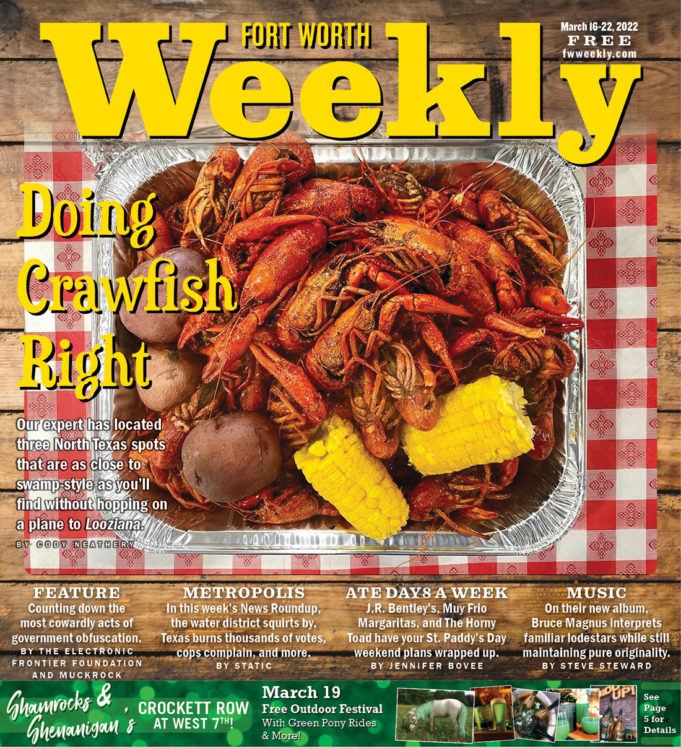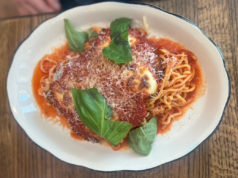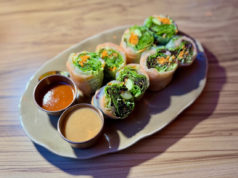“You get a line / I’ll get a pole / We’ll go down to the crawdad hole, honey” is easily the most popular song lyric about crawfish, a.k.a. “lobsters of the ditch,” which are dumped upon newspaper-covered foldout tables in restaurants or at backyard boils every spring. And when the stars align, the good eatin’ often begins early in the winter.
This year’s forecast is a bit iffy, according to Richard Hotard, sales director for Lafayette, Louisiana’s Frugé Seafood, the company that provides approximately 80% of Fort Worth-Dallas restaurants with crawfish every year. Inflation and supply-chain issues aren’t the only problems.
“Due to the relatively warm winter we had, January started off very promising for this year’s harvest,” Hotard said. “The bugs were a decent size for being early in the season. Unfortunately, with the cold snaps we saw in January and February, the crawfish burrowed back into the mud for warmth, which slowed their eating habits, which slows their growth. When supply dipped, we were having a hard time meeting demand. Add in the increase in fuel costs, restaurants will be paying more for price per sack. Depending on the individual restaurant, prices they charge per pound could definitely reflect that.”
Having harvested at the Frugé crawfish farm myself, visited the crawfish capitol of Breaux Bridge, Louisiana, and eaten my weight in mudbugs across the South, I’m always looking for them locally. And that isn’t easy.
Most of the crawfish I come across here are either overcooked or already dead before being cooked, which affects texture and quality, or boiled without an inkling of spice or hotter than hell to the point of being inedible. Perhaps the most common mistake is sprinkling seasoning over the entire batch after pulling them from the pot. This is simply unacceptable.
Fear not. I have discovered three places whose crustaceans are cooked on point with respect for tradition without room for doubt.
Tributary Cafe
(2813 Race St., 817-832-0823)
Originally hailing from Fort Worth rather than New Orleans, Chef Cindy Crowder-Wheeler has managed to capture the flavors of the bayou and given them a home at Tributary Cafe on Race Street in a funky bungalow that feels more Cajun Country than Wild West.
With a playlist that bounces between Frenchmen Street brass bands and zydeco, you can comb through your tray of mudbugs either perched at the bar or on the patio. The spice-to-flavor ratio on a recent visit was consistent without breaking a sweat, and the accoutrements (corn, potatoes, Brussels sprouts) were a lagniappe to my taste buds, albeit with a kiss of heat. The twist of meat from the tail was easy, which translates to a perfect boil time.
THE Cajun Market & Cafe
(5409 Colleyville Blvd., Colleyville, 817-527-2175)
Houma, Louisiana native Phil Tullis found his way to the Fort Worth suburbs, bringing the love of the swamp with him. In addition to operating THE Cajun Market & Cafe, he also owns a wholesale seafood business in Hurst making goodies like frog legs and blue crab more accessible to the public. Along the Gulf Coast, most seafood markets are found in fabricated metal buildings, and that’s exactly how the Cajun Market is set up. What it lacks in décor is made up for in well-stocked shelves of Louisiana products that one would typically discover in small towns such as Opelousas or Scott.
Served in a foil-covered pan, the steaming crawfish make their presence known when the foil is pulled back and the cayenne and citrusy aroma is breathed in. These bad boys retain a good amount of juice, and with that comes flavor. The crawfish here are cooked in three boilers that hold upwards of 400 pounds total with temperatures ranging from 180 to 200 degrees. After the crawfish are boiled for about five minutes, they receive an ice bath to stop the cooking process before they are allowed to soak up to 45 minutes.
Tullis regularly post updates on social media regarding recipes, inventory, and pricing, so you know what to expect ahead of time, and as he says, “This is Cajun-style and requires no sprinkled-on seasonings if soaked properly.”
Acadia Parish Crawfish
(7914 Camp Bowie West, 318-433-0650)
After decamping from its Eastside location, Acadia Parish Crawfish found a new home in conjunction with Chubby’s Burger Shack on Camp Bowie West in 2020. Minden, Louisiana native Daniel Demaline worked in the oil industry, which introduced him to Fort Worth, and it didn’t take long for him to realize no one cooked crawfish the way he knew. Not long after, he began his business with catering and now offers an assortment of Cajun and Creole foods along with live sales where call-ahead orders are recommended.
While Demaline still does a fair share of catering gigs, you can find him regularly at Chubby’s, where his boils will often include Gulf shrimp, Dungeness crab legs, and Cajun eggs as add-ons. The juice is retained by the spongy crawfish for a well-balanced flavor and kick — which proves there is a certain reward that comes with cooking them right. Demaline reiterated to me that most self-proclaimed Cajun restaurants that advertise crawfish don’t know how to properly boil them, which is why they are typically bland, covered in seasoning, then outrageously priced.
So, go forth, enjoy this season while it lasts, but be sure to call ahead or check social media for availability prior to your crawfish adventures.












